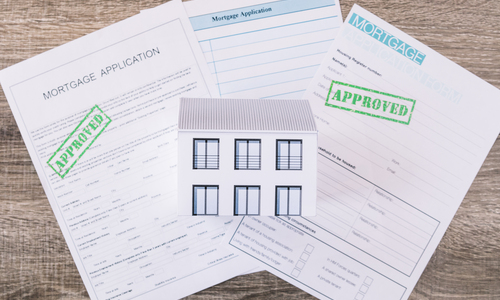Building a custom home is an ambitious and rewarding project, offering you the chance to create a living space perfectly suited to your needs and style. However, the journey from concept to completion is complex and involves several crucial steps. Among these, understanding and managing contracts, warranties, and permits are vital to ensure your project runs smoothly and without legal complications. This guide will provide an in-depth look at these key elements, helping you navigate the process with confidence.
1. The Custom Home Building Contract
1.1 Understanding the Contract
A contract is more than just a formal agreement—it’s the blueprint for how your custom home will be constructed. This document outlines the responsibilities of both you and your builder, detailing the scope of work, timelines, payment schedules, and the materials to be used. A well-drafted contract minimizes misunderstandings and disputes by clearly specifying what is expected from each party. It should also include provisions for unexpected circumstances, such as delays or cost overruns, ensuring that both parties know how to handle these situations.
1.2 Negotiating the Contract
Negotiating your custom home-building contract is a critical step. This is your opportunity to ensure the terms are fair and favorable. Pay close attention to key clauses such as those related to payment schedules, which should align with project milestones, and change orders, which cover any modifications to the original plan. Additionally, ensure that the dispute resolution process is clearly outlined, providing a path forward should any disagreements arise during the project. Effective negotiation can prevent future headaches and ensure a smoother building process.
1.3 Red Flags in Contracts
While reviewing your contract, be vigilant for potential red flags. These include vague language that leaves room for interpretation, hidden fees, or clauses that disproportionately favor the builder. For example, if the contract lacks specific details about the materials to be used or provides an open-ended timeline, this could lead to disputes down the line. Ensure every aspect of the contract is clear, precise, and mutually agreed upon before signing. It’s also wise to have a legal professional review the contract to catch any potential issues.
2. Warranties in Custom Home Building

2.1 Types of Warranties
Warranties are a crucial aspect of your custom home project, providing peace of mind that any defects or issues will be addressed after construction is complete. There are generally two types of warranties to consider: the builder’s warranty and manufacturer’s warranties. The builder’s warranty covers workmanship and materials used in the construction of your home, typically for a period ranging from one to ten years, depending on what is covered. Manufacturer’s warranties, on the other hand, apply to specific products or systems in your home, such as appliances, HVAC systems, or roofing materials, and are provided by the product manufacturer.
2.2 What to Expect from a Warranty
Understanding the scope and duration of your warranties is essential. A typical builder’s warranty might cover major structural components like the foundation and framing for up to ten years, while systems such as plumbing and electrical might be covered for a shorter period, often two to five years. It’s important to review the warranty documents carefully to understand what is covered and for how long. Keep in mind that not all issues may be covered; for instance, normal wear and tear or problems arising from homeowner neglect are usually excluded.
2.3 How to Handle Warranty Claims
If a problem arises in your new home, handling the warranty claim promptly and correctly is key to ensuring it’s resolved efficiently. Start by documenting the issue with photos and written descriptions, and then contact the builder or manufacturer to initiate the claim process. Be sure to follow any specific procedures outlined in your warranty documents, as failing to do so could result in a denied claim. If you encounter challenges, such as the builder disputing the claim, it may be necessary to involve a legal professional to mediate or resolve the issue.
3. Permits and Legal Requirements

3.1 The Importance of Building Permits
Building permits are a legal requirement for most construction projects, including custom homes. These permits ensure that your project complies with local building codes and zoning regulations, which are designed to protect the safety and welfare of the community. Failing to obtain the necessary permits can result in significant fines, delays, and even the need to dismantle completed work. More importantly, permits provide a layer of protection for homeowners, ensuring that the construction meets the required standards and reducing the likelihood of future problems.
3.2 Types of Permits Required
The types of permits required for your custom home will vary depending on your location and the scope of the project. Common permits include zoning permits, which ensure your home is built in accordance with local land use regulations; building permits, which cover the structural aspects of your home; and specialized permits for electrical, plumbing, and mechanical systems. The process of obtaining these permits typically involves submitting detailed plans to your local building department and undergoing inspections at various stages of construction.
3.3 Common Permit Issues
Obtaining permits can sometimes be a time-consuming and frustrating process, with delays being a common issue. These delays can occur due to incomplete or inaccurate applications, backlog at the permitting office, or required revisions to the plans. It’s crucial to start the permitting process early and work closely with your builder and local officials to ensure everything is in order. Building without the proper permits is not advisable, as it can lead to serious legal and financial consequences, including the possibility of having to remove or redo work that doesn’t meet code.
4. Case Studies: Learning from Experience

4.1 Success Story
Consider the case of the Thompson family, who successfully built their custom dream home by diligently managing their contracts, warranties, and permits. They spent time carefully negotiating their contract, ensuring clear terms for payment schedules and materials. When issues arose with the HVAC system, their well-understood warranty allowed them to resolve the problem quickly without additional cost. Additionally, they faced no legal issues with permits, as they had worked closely with their builder to secure all necessary approvals before construction began.
4.2 Lessons Learned
On the other hand, the experience of the Robinson family highlights the importance of thorough preparation. They faced significant delays and cost overruns because of an unclear contract that lacked specificity on materials and timelines. Additionally, a failure to properly secure permits early in the process led to fines and the need to redo some work, which added to their stress and expenses. These challenges underscore the necessity of clear contracts, understanding warranties, and securing permits to avoid costly mistakes.
Building a custom home is a complex process that requires careful planning and attention to detail, particularly regarding contracts, warranties, and permits. These elements form the backbone of your project, providing legal protection and ensuring the quality and safety of your home. By taking the time to understand and manage these aspects, you can avoid common pitfalls and enjoy the process of bringing your dream home to life. Always consult with professionals, review all documents thoroughly, and be proactive in addressing any issues that arise to ensure a successful and satisfying home-building experience.
*Areas we Serve:
– Florida
– North Carolina
– Georgia
– South Carolina
– Tennessee
*Interested in knowing more about Our Custom House? check out our blog
*Start building your bardominium now by clicking here, or contact us
Vicente Orellana is available to assist you as a personal Realtor in addition to serving as a builder/developer with Ultramodern Development Group
Do you need assistance with calculating a mortgage loan? try our mortgage calculator
Please contact us at: (689)-263-0881





